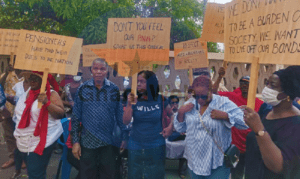Pension plans provide a cushion to ensure that active workers in their old age have a minimum level of income to sustain their livelihoods and not be engulfed by poverty to become a burden on their families as well as the state.
According to the Ghana Statistical Service, more than 70% of employed persons are neither entitled to social security nor receive any pension on retirement – while 80.1 percent have no subsidised medical care at the workplace.
With approximately 80% of Ghana’s labour force employed in the informal sector, a system that seeks to cushion, protect and prevent all workers from suffering labour market and economic shocks is required.
It is becoming more evident that pensions can help older people and their families avoid the negative effects of shocks in developing countries, considering that traditional social protection systems across the world are gradually but increasingly breaking down.
In this day and age when many young adults postpone starting families, an increasing number of pensioners are still paying school fees for their kids… along with the associated cost of raising them.
The traditional social structure of family systems in Ghana is still heavily functional, as older folks with stable sources of income – be it pension or investment income – still provide financial support to struggling family members and even non-relatives.
This redistributive nature is in itself a source of informal social protection. Pensioners are in the most vulnerable stage of their life cycles, with related health challenges that are not adequately cushioned by the National Health Insurance Scheme (NHIS). Hence, Ghana’s Domestic Debt Exchange Programme (DDEP) that seeks to restrict access to their lifelong investments, especially for the elderly, undermines social protection.
With the restructuring of pension schemes into three tiers, where tiers 1 and 2 are mandatory for formal sector workers, a number of Ghanaians embraced the third tier which encourages individuals to sign up for voluntary contributions to augment their old age reserves.
The SSNIT informal sector fund and other private pension schemes have proven to be very relevant in providing a safety net for people, as they can make partial withdrawals along their life cycle. For the elderly, lump-sums from tiers 2 and 3 must be invested safely to ensure a life annuity that protects them from the risks of old age.
Government bonds and Treasury bills, which were supposed to be safe assets and investment instruments to hold, have become the very pit dug by Ghana’s DDEP: threatening lifelong investments and social security guarantees aimed at preventing or alleviating poverty, vulnerability and social exclusion, as stipulated in the International Labour Organisation’s social protection floors.
The volatile nature of Ghana’s economy – particularly in recent years with the financial sector clean-up that has thrown many households into financial difficulty, the emergence of COVID-19, the Russian-Ukrainian war amid economic mismanagement, identified overspending and corruption from audit reports, and the bloated size of government – appear to have only exacerbated things for Ghanaians across all life cycles and not just old-age social protection.

These events will have long-term consequences for pension schemes, insurance companies and banks. The goal of getting informal sector workers to subscribe to pension schemes and even NHIS seems threatened.
Formalised financial sector arrangements should make it possible for people to access their funds when they need it most, but the current DDEP undermines that idea – and it looks like a very bitter pill is being forced down the throats of these pensioners.
Over the last month, households have granted heartfelt interviews to the media about the impact of government’s decision on their children’s education, buying medication for old age illnesses such as hypertension, diabetes, strokes, kidney diseases and other chronic illnesses, or simply putting food on their tables.
The most heartbreaking is seeing senior citizens picket at the Ministry of Finance for three consecutive days to reason with government but to no avail. This is a human rights abuse.
Given that Ghana’s life expectancy is 66.3 years – which is lower than the global average of 73.4 years according to the World Health Organisation, government’s decision to push DDEP down the throats of private bond holders, especially pensioners, is like signing their death warrant.
The ILO, the UN and labour unions must impress upon the government of Ghana to exclude individual bond holders, particularly senior citizens, from the DDEP as a matter of urgency by finding a more suitable arrangement that is fair, equitable and practical.
Judicious spending, cutting down the size of government and expenditure, and ensuring accountability and transparency in all dealings as efforts are being made to bring the situation under control are sorely needed – hence, financial institutions and insurance companies must begin taking big steps to diversify their investment portfolios and limit their over-reliance on government long-term instruments, which have proven to be equally risky in recent times.
Otherwise, we are likely to lose all the gains made over the years in banking the unbanked population and the formalisation of our economy. Also, households must consider equally diversifying their portfolios by investing in housing, agriculture and other ventures that keep food on the table.
The writer is a Social Protection and M & E Specialist. She is currently the Research and Training Coordinator at the Centre for Applied Research and Innovation in Supply Chain-Africa – CARISCA, KNUST.










